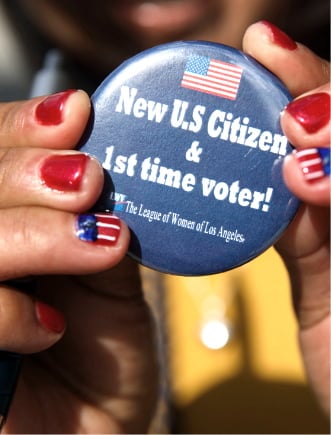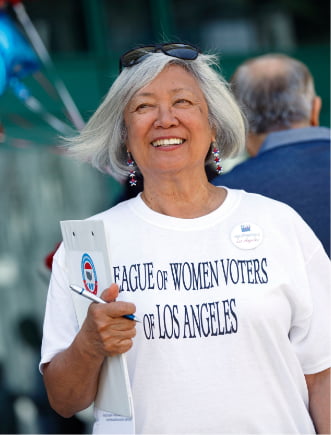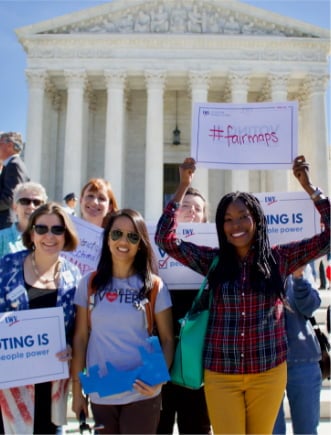This opinion was originally published in the Times Union.
Republicans running for local offices in Malta and Clifton Park, among other towns, refuse to debate their opponents. The reason? They say the League of Women Voters is partisan.
Most members of the group are Democrats, the claim goes, who support progressive causes and candidates. Ted Willette, chair of Malta Republicans, even accuses the League of morphing from an advocacy organization into a sort of political party. The argument echoes one often heard from Republicans on the national stage, who claim that presidential debates, in particular, are essentially home games for the Democrats.
There is ample evidence that the League of Women Voters works to keep bias out of its debates. The League typically gathers questions on local issues from the public, not from its members; gives candidates equal time to answer and rebut; and doesn't allow attacks. Most questions in local elections focus on the nuts and bolts of local government, topics that often aren't particularly partisan. Still, if a question seems biased or out of line, candidates have the opportunity to say so.
Partisanship at the League of Women Voters isn't the issue here. The real problem is the cowardice of the candidates. After all, if the concern was really about the League of Women Voters, Republicans could propose alternate sponsors more to their liking. That there is no indication any have done so suggests allegations of bias are a handy excuse rather than a legitimate concern.
Too many candidates would rather let their mailers and attack ads do the talking. And know who loses when they take the easy way out? The voters. The League's forums are often the only chance residents get to hear directly from candidates, to ask them questions, and to hear them respond to their opponents. Such debates are almost always the only opportunity to see candidates side by side.
Of course, many Republicans have shown they have enough backbone to face their opponents. In Troy, for example, Republican mayoral candidate Carmella Mantello participated in a League of Women Voters debate against Democrat Nina Nichols. In the most recent governor's race, Republican Lee Zeldin took on Gov. Kathy Hochul in a debate hosted by Spectrum News, and he was eager for additional forums.
Ms. Hochul, in that race, was the candidate who was reluctant to participate in a debate, a tactic often employed when incumbents favored to win hope to deny their opponents a chance to score points. We suspect a similar dynamic is playing out in some of the Saratoga County races and in the contest for sheriff in Rensselaer County.
While voters are the losers when candidates dodge debates, voters are also the solution. If candidates believe that voters will hold them accountable for not laying out their platform in a public forum and taking questions about it, they will be much less likely to make up cockamamie excuses for their cowardice. Voters should tell these chickens that ducking debates won't fly.
What You Can Do
The Latest from the League
Last week, the first debate for the 2016 presidential election took place. Here are a few things you can do to get the most out of watching future debates.
The entire House of Representatives and dozens of US Senate and Governor’s races will be decided by voters on Election Day. Attending or watching a candidate debate is one of the best ways to prepare for casting your ballot!
The League joined the Leadership Conference for Civil and Human Rights and its member organizations calling for voting rights to be addressed at the upcoming Democrat and Republican debate/forum. The letter is signed by 36 organizations and has been sent to the network heads at MSNBC and CNBC as well as the moderators of the events.









